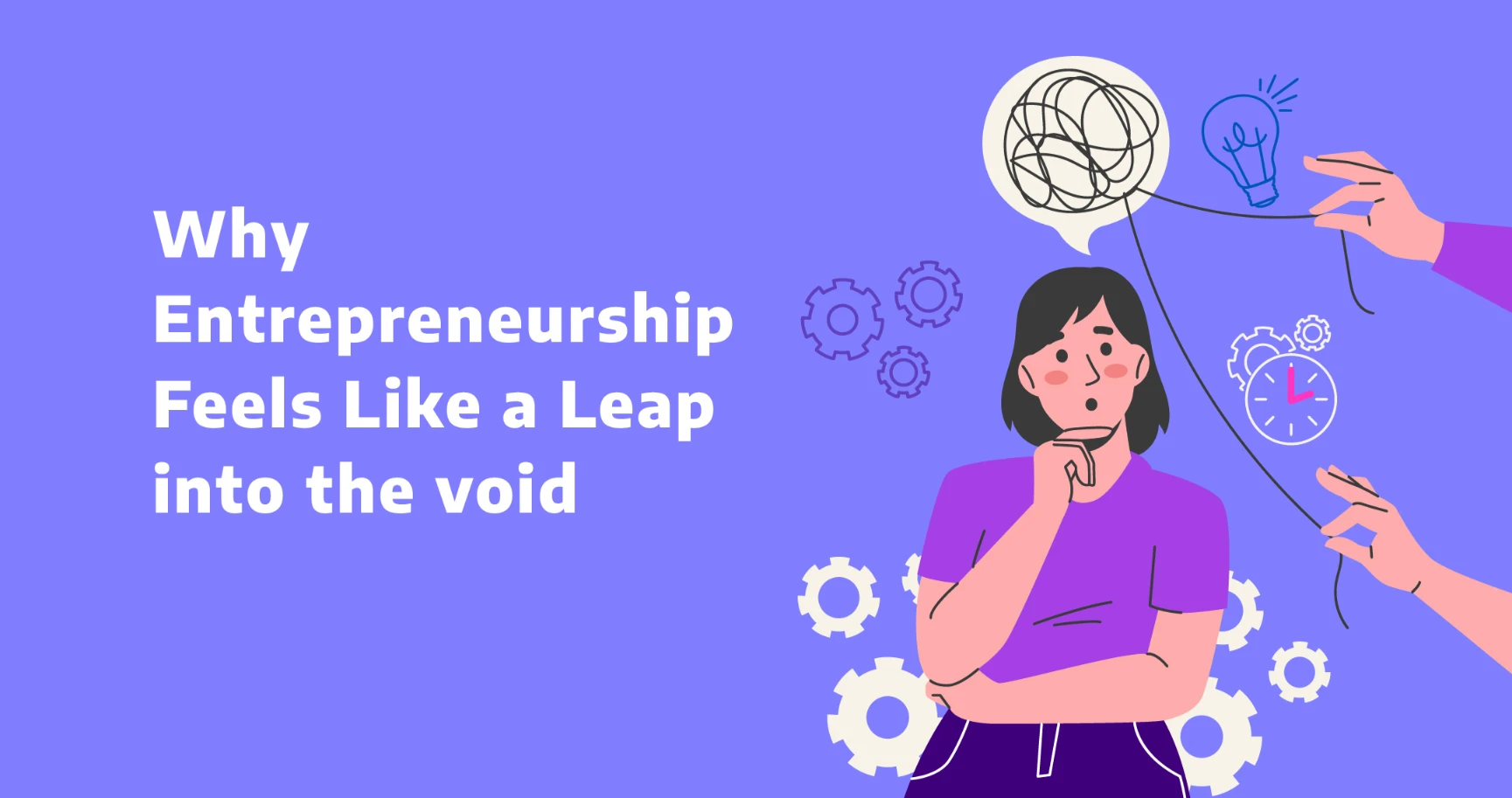A few months ago, I sat at a table with close friends. Brilliant people, all executives at established companies, climbing the ladder of solid careers, enjoying a level of stability many would envy. The conversation turned to the future, our aspirations, the challenges we anticipated, and the changes we envisioned for the years ahead.
At one point, almost playfully, I asked: “Can you imagine yourselves starting something of your own? Founding a project, a startup, or an idea you truly believe in?”
There were six of us. And the answer, expressed in different tones but with striking unanimity, was No.
Some whispered it almost apologetically. Others laughed as if dismissing the idea. But the words conveyed the same message: too risky, too exhausting, too unstable. One friend even said, “I admire people who do it, but I couldn’t live with that kind of uncertainty.”
I remember going quiet because, for me, working with entrepreneurs isn’t just a theoretical idea. It’s my everyday reality. I couldn’t picture doing anything else. That conversation stayed with me for days.
Before going further, there’s an important truth worth stating, not everyone has to be an entrepreneur. There’s nothing wrong with choosing a professional career within a company. In fact, it’s a misconception to think that everyone is meant to build their own business. The world needs builders who start from scratch and the people who maintain and grow existing organizations. Neither is better; they are simply different. The value lies in knowing which role truly suits us and embracing that role entirely.
Why does entrepreneurship feel unattainable to some and yet inevitable to others?
The clear answer is that it is truly a leap into uncertainty. Creating something from nothing takes a rare type of courage. There are no guarantees, no proven routes, no safety nets. Only an idea and a persistent will to bring it to life.
And yet, when I look around, I see people doing it. Entrepreneurs who are building products with teams of 25 people and closing deals with Fortune 500 clients. Companies scaling to thousands, sometimes millions of users. They face the same risks, the same exhaustion, the same doubts.
So, what makes the difference?
The more I thought about it, the more I realized that behind every visible success, there is often something invisible holding it together. Not just funding or luck, but support systems—teams, structures, and people who absorb some of the chaos, so the founder doesn’t collapse under it. These systems prevent the technical side from becoming a trap and provide stability when everything else is fragile.
That realization reframed my role. We don’t just help founders ship code or scale infrastructure. We help them preserve their energy, clarity, and focus because anxiety is real. Impostor syndrome is real. Fear of failure is constant, and fatigue can be overwhelming. The weight becomes unbearable if the technical foundation adds more noise than peace of mind.
So, in our work, the real question we try to answer is not, “How complex is the system?” or “How perfect is the architecture?” but rather: “How much unnecessary anxiety are we removing today for this founder, so they can keep moving forward?”
Because that is what allows ideas to grow. Not just brilliant strategies or perfect execution, but the presence of a steady framework that gives entrepreneurs the room to keep building, even when everything else feels uncertain.
What we believe—what experience has repeatedly shown us—is that businesses don’t fail because of a lack of ideas. They fail when the people behind them run out of energy. Protecting that energy is just as important as securing funding, as essential as hiring the right team, and as critical as any line of code.
That is why entrepreneurship should not feel like a leap into the unknown. With the right structures, partners, and support, it can become something entirely different: a leap toward opportunity.
Because the world is full of brilliant minds, extraordinary people come up with ideas every day that could change industries, solve problems, or improve lives. But too often, those ideas stay stuck in notebooks, late-night conversations, or passing thoughts that are never acted upon. The real loss isn’t just the failed startups we hear about, but the ones that were never even tried.
Our collective responsibility is to create the conditions for ideas to come to light. To give them a chance to exist, test themselves in the world, and propose new solutions. Because only when those sparks become tangible do they have the power to move us forward.
You don't have to do it alone if you’re facing the challenge of turning an idea into reality. Let’s explore how proper support can make a difference.
Credits
Writer: Eduardo Mora
Illustrator: Dai Fiorenza
Disclaimer
In this article, AI was used to check grammar and syntax.
